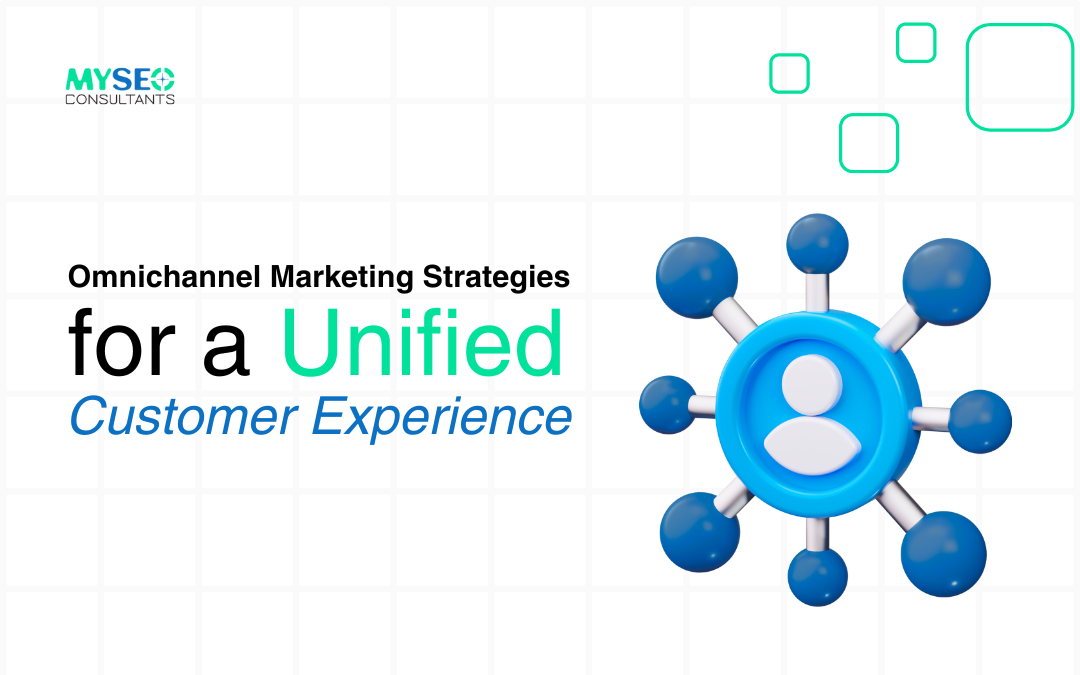Whether you’re entering a physical store or scrolling through social media on your smartphone, shopping is a fun experience for everyone! Can you recall the last time you purchased something online? What led you to this decision? Did you watch an advertisement, get an email, or bump into a display billboard at a mall? As much as people may be aware, marketing is everywhere, and you can’t escape it. The decision you make to make a final purchase is influenced by every brand interaction you have along the way. So, how can brands determine what strategies they can use to target the customers at each of these stages? The answer is – Omnichannel Marketing!
It is essential to understand that with omnichannel marketing, all your channels can be coordinated, and all your omnichannel marketing strategies can be made to operate in harmony. Thus, knowing how your customers interact, you can be specific about engaging customers on different channels as they progress through the path toward the purchase decision. Brands now have even more technology-enabled touchpoints and other opportunities to engage consumers with unique shopping experiences.
Understanding Omnichannel Marketing: Key Elements & Strategies
In a digital age, where customer interactions span numerous channels, businesses continuously explore innovative ways to engage with their audiences. Omnichannel marketing emerges as a beacon of personalized and cohesive customer experience. Before delving into practical strategies for implementing an omnichannel approach, let’s clear up some basics.
What Is Omnichannel Marketing and Its Key Elements?
Omnichannel marketing is an approach that provides customers with a fully integrated shopping experience by unifying user experiences across all platforms and devices. Whether the customer is shopping online from a mobile device, a laptop, or in a brick-and-mortar store, the experience will be seamless.
An omnichannel marketing approach ensures that the customer has a positive and consistent experience on each omnichannel marketing platform by providing a few key elements:
- Recognizable, consistent brand voice and vision
- Customized messages as per particular interest
- Content that adapts to the buyer’s previous interactions within the purchasing funnel within their present stage
A known brand makes brand recall easier, while customization as per interest and last purchase history to filter branded content makes the consumers more likely to engage with the branded content across the different platforms.
What Is the Difference Between Omnichannel & Multichannel Strategy?
While both strategies involve interacting with customers through multiple channels, the key difference lies in integration. Multichannel marketing treats each channel as a separate entity, while omnichannel marketing intertwines these channels to create a cohesive customer journey.
Additionally, if you’re looking to develop an app that integrates seamlessly like omnichannel marketing platforms, our expert app developers are here to assist you.
Multichannel:
- Diverse Channels: Engages with customers through several independent channels such as social media, email, retail stores, websites, etc.
- Separate Strategies: Each channel operates with its strategy and goals, often working in silos without much coordination.
- Individual Experiences: Customers may receive different experiences on each channel, which might not be interconnected.
- Focus: The focus is on maximizing the effectiveness of each channel individually rather than integrating them.
Omnichannel:
- Integrated Channels: Offers a seamless and consistent customer experience across all channels, whether it’s in-store, online, on a mobile device, or through customer service.
- Unified Strategy: All channels function under a cohesive marketing strategy that considers the customer’s perspective and journey.
- Continuous Experiences: Customers enjoy a constant and connected experience, regardless of the channel or device they are using.
- Focus: Places the customer and their holistic experience at the core of all marketing efforts, aiming for harmonious engagement.
5 Strategies for Omnichannel Marketing Approach In 2024
As mentioned, considering the user’s interaction with your business is crucial when crafting an omnichannel marketing approach. It focuses not on the platform but on the overall experience. Let’s take a look at 5 strategies for omnichannel marketing approach that are very essential:
1. Data Collection
The foundation of an effective omnichannel strategy lies in understanding your customers. Collect data at every touchpoint, from social media interactions and website visits to in-store purchases and customer support interactions. The more data you have, the better you can tailor the customer experience.
2. Data Analytics
Data on its own offers value, but analytics transforms this data into actionable insights. Use advanced analytics to dissect customer behavior, preferences, and trends. This analysis can help predict customer needs, personalize their experience, and make informed marketing decisions.
3. Customer Journey Mapping
Chart the journey of your customers across all channels and touchpoints. This mapping should consider various customer personas and how they interact with your brand. Understanding these journeys is crucial in identifying gaps in your marketing strategy and opportunities for a more cohesive experience.
4. Brand Guidelines
Consistency is key in omnichannel marketing. Establish clear brand guidelines covering all channels, ensuring your brand’s voice, tone, messaging, and visual elements are uniform. This consistency helps reinforce brand recognition and trust.
5. Testing/Optimization
The digital landscape is ever-evolving, making continuous testing and optimization critical. A/B testing different approaches can reveal what resonates best with your audience. Use these insights to refine your strategies continuously, optimize the user experience, and improve conversion rates.
Wrapping It Up!
With the advancement in technology and an ever-changing customer demographic, omnichannel marketing is emerging as the ultimate model for brands. Thus, it is beneficial to adapt to this approach, but it is crucial to continue being significant and viable in the constantly evolving world of the internet. Our SEO Consultants will help you find the best omnichannel marketing platforms and support your business throughout your journey.


